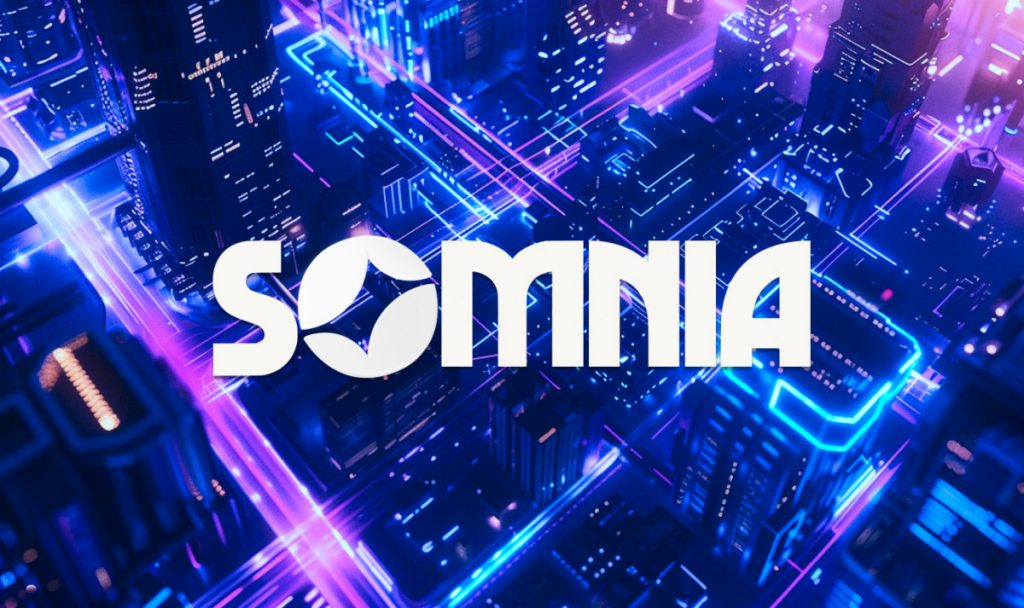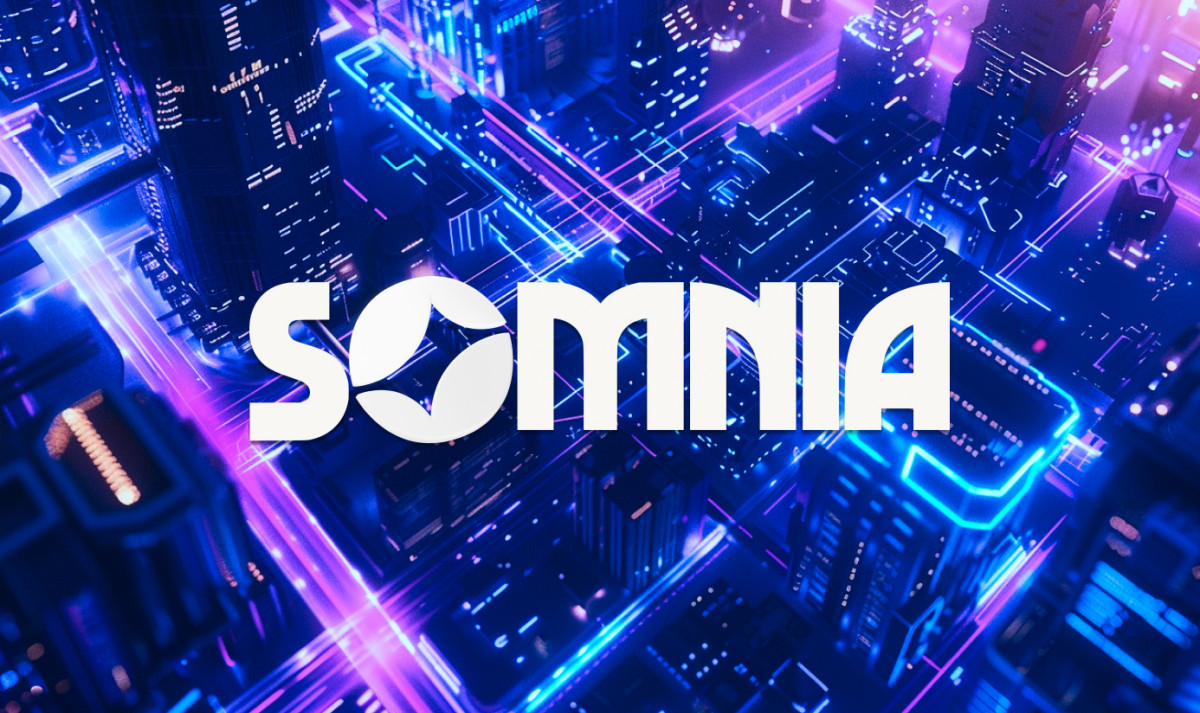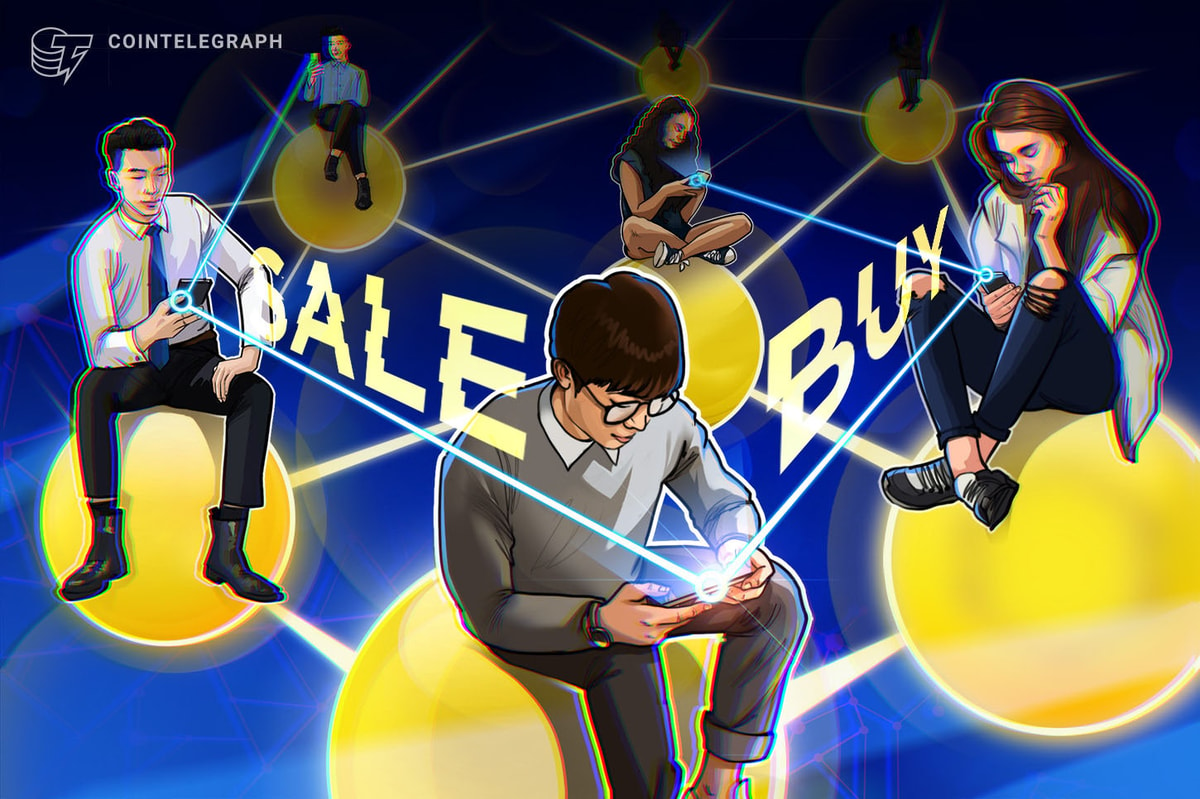

In Brief
Somnia’s Playground allows users to create virtual worlds, combining creativity, social interaction, and Web3 integration, making it a significant competitor in the metaverse concept.

Users may create their own virtual worlds using Somnia’s Playground, which offers a special fusion of creativity, social interaction, and Web3 integration. Right now, Somnia is a notable competitor in this digital space as the metaverse concept continues to gain popularity thanks to recent advances in its Playground feature.
The Somnia Playground: An Interactive Digital Art Canvas
Somnia Playground is an example of a user-centered metaverse construction method. With its help, people may create and personalize their own virtual spaces, which can be anything from private rooms to vast outdoor areas. The emphasis on user ownership and decentralized content production that characterizes Web3 is in line with the democratization of virtual space development.
The platform’s dedication to interoperability within the larger blockchain ecosystem is demonstrated by its compatibility with Web3 assets that are enabled by Somnia. With the help of this functionality, users can easily incorporate their current digital assets—including NFTs—into their Playground areas. For consumers who are involved in several platforms, this kind of integration delivers a more coherent digital experience by bridging the gap between diverse blockchain initiatives.
Placeable Things: Improving Customization in Space
The addition of placeable objects to the Somnia Playground is a major improvement. With the help of this functionality, users may add a wider range of items to their virtual worlds, extending the platform’s editor tools. Users are able to experiment with environment building and spatial design thanks to the preloaded collection of things.
The Playground environment’s ease of listing and loading items makes the creative process more efficient. It makes it easier for anyone to construct compelling virtual worlds, even if they don’t have much experience with 3D modeling. In order to promote a varied and engaged user base inside the Somnia ecosystem, accessibility is essential.
Using the Item Builder to Empower 3D Artists
The Item Builder is an additional tool that enhances the placeable items functionality and gives 3D artists and enthusiasts more opportunities. Users of this platform can develop bespoke items using Metaverse Markup Language (MML) or upload GLB 3D files. This feature is important because it may foster a community of creators inside the Somnia ecosystem.
Somnia is establishing the foundation for a user-generated content economy on its platform by allowing users to convert their own creations into NFTs. This strategy has the ability to foster a self-sustaining ecosystem where people may produce, share, and even make money off of their digital works, in addition to encouraging innovation.
The platform’s open and community-driven nature is further emphasized by the fact that anybody may mint copies of published works. This feature has the potential to create a thriving digital goods industry that encourages producers to collaborate and get inspired.
Digital Identity and Web3 Integration
The way that Somnia handles digital identification and user authentication is in line with the latest developments in Web3. Users of the platform may access their cryptocurrency wallets or log in with a dedicated Metaverse browser. The smooth integration preserves consistency with other Web3 apps while lowering friction in the user experience.
The avatar selection flexibility, which lets users pick from other NFTs on the Somnia protocol or projects that support Somnia, demonstrates an appreciation for the significance of digital identity in the metaverse. This feature enables users to retain a consistent online persona across several virtual settings while acknowledging that they may have invested in digital avatars across multiple platforms.
A major draw of Somnia’s Playground is its social component. Even those who aren’t very knowledgeable about blockchain technology may use the platform because it allows them to invite friends to their own place with just a web link. Up to 20 individuals in a location are now supported, which creates a mix between private meetings and more formal social events.
Nevertheless, Somnia’s acknowledgment of the value of social contact in virtual worlds is evident in the planned development of social features, which include boosting each space’s capacity and introducing voice chat. These improvements might turn the Playground from an individual creative area into a central location for online groups, events, and get-togethers.
Somnia’s Playground roadmap shows key future development goals for the ecosystem. One noteworthy change is the addition of tradable metaverse goods. Within the Somnia platform, this feature has the potential to establish a new virtual marketplace where users may exchange virtual commodities and make money off of their works.
The idea of a market for one-of-a-kind metaverse commodities fits well with larger developments in the NFT and virtual goods industries. It may provide digital artists and creators a new platform to exhibit and market their work, which might draw a wide spectrum of talent to the site.
The way that Somnia is creating metaverses is indicative of a move toward more decentralized and user-centric virtual worlds. This strategy is in contrast to more centralized methods to the creation of the metaverse, where the virtual environment and its contents are mostly controlled by a single entity.
The focus on user-generated content and compatibility with current Web3 assets may serve as a model for the development of other metaverse systems. It envisions a day when people will have more authority over their belongings and online persona in a variety of virtual spaces.
Somnia’s Playground is located where a number of developments in digital space and technology meet. It is positioned as a notable metaverse creation attempt due to its combination of Web3 connectivity, social features, and user-generated content.
Disclaimer
In line with the Trust Project guidelines, please note that the information provided on this page is not intended to be and should not be interpreted as legal, tax, investment, financial, or any other form of advice. It is important to only invest what you can afford to lose and to seek independent financial advice if you have any doubts. For further information, we suggest referring to the terms and conditions as well as the help and support pages provided by the issuer or advertiser. MetaversePost is committed to accurate, unbiased reporting, but market conditions are subject to change without notice.
About The Author
Victoria is a writer on a variety of technology topics including Web3.0, AI and cryptocurrencies. Her extensive experience allows her to write insightful articles for the wider audience.

Victoria d’Este

Victoria is a writer on a variety of technology topics including Web3.0, AI and cryptocurrencies. Her extensive experience allows her to write insightful articles for the wider audience.
Read More: mpost.io










 Avant Staked USD
Avant Staked USD  Cronos Bridged WBTC (Cronos)
Cronos Bridged WBTC (Cronos)  Escoin
Escoin  MAGIC•INTERNET•MONEY (Bitcoin)
MAGIC•INTERNET•MONEY (Bitcoin)  Coq Inu
Coq Inu  SuperRare
SuperRare  DODO
DODO  FUNToken
FUNToken  SMARDEX
SMARDEX  Autonolas
Autonolas  LandWolf
LandWolf  Metal Blockchain
Metal Blockchain  TruFin Staked APT
TruFin Staked APT  Tensor
Tensor  SpaceN
SpaceN  Avalanche Bridged WETH (Avalanche)
Avalanche Bridged WETH (Avalanche)  Hunt
Hunt  Kekius Maximus
Kekius Maximus  Stronghold
Stronghold  Shentu
Shentu  Cortex
Cortex  Decentralized Social
Decentralized Social  Cobak
Cobak  Sui Bridged Ether (Sui)
Sui Bridged Ether (Sui)  Artificial Liquid Intelligence
Artificial Liquid Intelligence  Mubarak
Mubarak  Jumbo Blockchain
Jumbo Blockchain  dForce
dForce  Hypurr Fun
Hypurr Fun  ROAM Token
ROAM Token  Zedxion
Zedxion  Sanctum Infinity
Sanctum Infinity  Vine
Vine  Overnight.fi USD+
Overnight.fi USD+  Mountain Protocol USD
Mountain Protocol USD  Sygnum FIUSD Liquidity Fund
Sygnum FIUSD Liquidity Fund  DevvE
DevvE  AxonDAO Governance Token
AxonDAO Governance Token  Milady Meme Coin
Milady Meme Coin  BIM
BIM  HashKey Platform Token
HashKey Platform Token  EUR CoinVertible
EUR CoinVertible  Avalanche Bridged WBTC (Avalanche)
Avalanche Bridged WBTC (Avalanche)  Keep Network
Keep Network  Zerebro
Zerebro